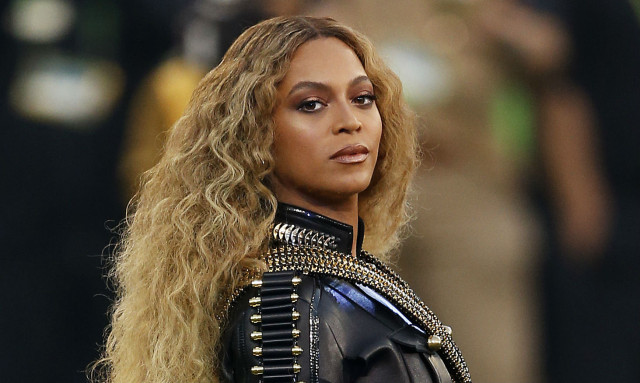Beyoncé is the defining cultural icon of our time. Her biggest hits, such as ‘Single Ladies’ and ‘Crazy In Love’, are gargantuan moments that exist beyond her in the fabric of pop culture, while her beauty and personal life enhance her role as celebrity superstar – simply put, it’s difficult to imagine a person in the Western world who doesn’t have a passing familiarity with her name. So the 50th Superbowl – one of the most watched events in the world – was the perfect opportunity to debut new single ‘Formation’, a call to arms that provocatively meshes race, gender, class and celebrity.
Beyoncé is black. That’s what ‘Formation’ is about – a reminder that the self-made, hard-working global phenomenon comes from a cultural background that has consistently been mistreated and abused in modern history. It sees her doubling down on stereotypes of American blackness such as ‘hot sauce in my bag’ over a beat that owes nothing to pop radio and everything to hip-hop, lyrically proud of a cultural heritage. The single’s video takes an even more blaring approach to race issues: routines with female dancers adorned with full Afros, intercut with scenes of flooding that recall the news reports of Hurricane Katrina. ‘Formation’ has caused controversy, by alienating a section of a global audience who haven’t really got to grips with the idea that someone can be black, successful and proud. But for all Beyoncé’s success, her skin colour is still the same colour as the victims of police brutality and structural discrimination, and while all her wealth and fame protect her from the everyday realities of racism, her experience of it is no less valid.
Of course, Beyoncé isn’t the only contemporary black female performer with something to say. Mainstream culture doesn’t really seem to allow her contemporaries and peers the same platform – an implicit rejection of the role of both women and minority voices – which is, quite simply, a failing of modern structures. Take Dawn Richard, an independent r&b singer who rose to fame via Danity Kane, the band produced from P Diddy’s reality series Making The Band. Last year’s opus Blackheart was one of the year’s best releases, not just in r&b but any genre – a fusion of Kelis, Kate Bush and Bjork with thrilling production, telling the story of Richard’s own personal struggles with fame, success, relationships and artistic identity. Richard is an entirely self-funded artist whose Kickstarter projects have achieved meagre success: the phrase “slept-on” seems designed for her career.
Richard is far from alone – K. Michelle is another reality star with a singing career, but where Richard is spiritual and profound, K. Michelle is earthy and grounded with a brazen honesty that’s almost jarring at times. K. Michelle seems to take a sense of pride in her realness, straddling the boundary between authentic and trashy, but her lyrics are so heartfelt and her voice so powerful it’s hard not to be moved by her miseries and share her celebrations.
And then there’s Jazmine Sullivan. Last year’s Reality Show was a wonderful comeback for a previously-retired talent of bewildering proportions. Loosely a concept album borne from watching daytime reality shows, Sullivan imbues the characters in her vignettes with a sense of compassion and understanding, singing with a voice that’s commanding yet vulnerable in its wounded cracks. ‘Mascara’ is akin to ‘Formation’ in that it’s a song about issues: a study of how beauty is work, and how the work it takes to be beautiful affects women; redefining success in terms of a flawed patriarchy as a competition to stay attractive, examining the vapidness of modern Instagram culture – yet never moralistic or judgemental. It’s the kind of song that deserves essays and discussion by saying so much with so little.
But that’s the difference between Beyoncé and her peers. ‘Formation’ inspires the critical thought, the tabloid attention, the in-depth reviews. Sullivan remains a niche concern. And that’s what makes ‘Formation’ a truly great song. As a piece of music, it’s good – a little lacking in melody, but delivered with charisma and vital urgency. But it could only exist as it does, with all its impact and issues, as a song by Beyoncé. Songs like ‘Formation’ are what let us hear songs like ‘Mascara’ – it reminds me us that black female voices still need to be heard. The world needs Beyoncé, and it needs songs like ‘Formation.’




